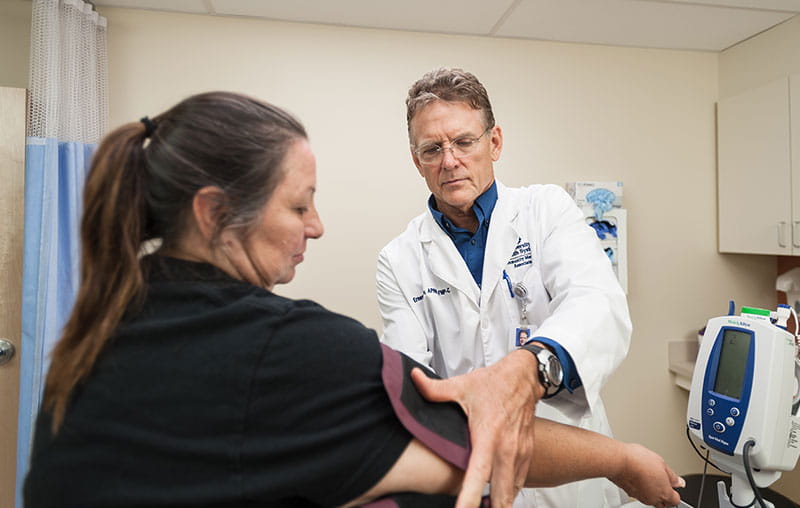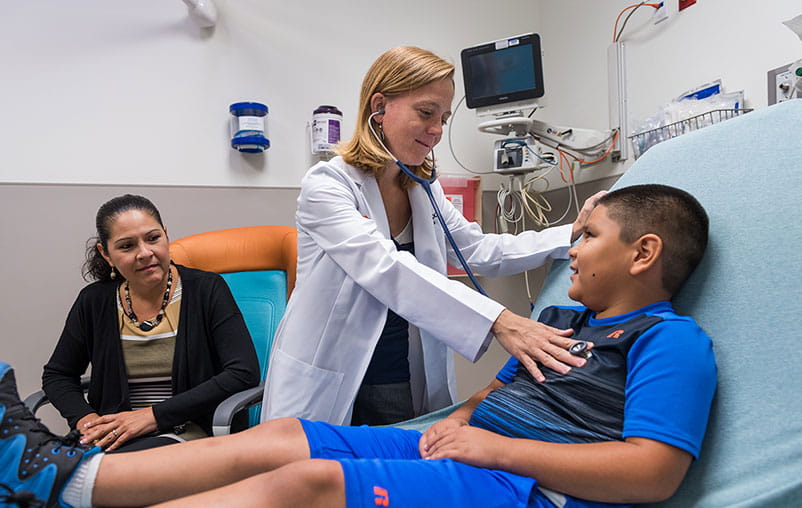When the kidneys are working at their best, we rarely think about them. But just like you need to take steps to protect your heart, you should also take steps to boost your kidney health.
The kidneys play an important role in the body. These powerhouses are responsible for filtering your blood — removing waste and excess water and turning them into urine, which is then transported out of the body.
But when the kidneys aren’t working effectively, it can impact the entire body.
Dr. Tareq Nassar, a nephrologist with University Health, shares why it’s important to take steps to keep your kidneys healthy and strong.
How Your Kidneys Work
The kidneys are two bean-shaped organs located just below the ribcage, one on each side of the spine. Every minute, your kidneys filter approximately half a cup of blood.
“As they filter the blood, they remove waste products and extra water, turning them into urine, which then flows through tiny tubes called the ureters to the bladder,” explains Dr. Nassar. Urine is then stored in the bladder until it’s excreted from the body.
During the filtering process, the kidneys also remove acids produced by cells in the body, helping to maintain the necessary balance of water, salts and minerals. Those salts and minerals are often called “electrolytes.”
The Importance of Good Kidney Health
At the most basic level, the kidneys produce urine, but they do so much more than that. Filtering your blood and removing things your body doesn’t need helps maintain the balance necessary for your nerves, muscles and other tissues to function effectively.
The kidneys are also responsible for producing hormones that help control blood pressure, produce red blood cells and keep your bones strong. In short, they play a key role in keeping you healthy and well. Keeping your kidneys healthy can help you maintain good overall health.
7 Steps to Improve Kidney Function
About one-third of American adults are at risk of developing kidney disease.
There’s good news, though. The actions you take today can impact your kidney health now and in the future. Not sure where to begin? Dr. Nassar recommends taking these seven steps to improve your kidney function:
Know Your Risk Factors
Many Americans have at least one risk factor for kidney disease. Chronic conditions such as diabetes, high blood pressure or heart disease, family history, being overweight or obese all increase your risk for kidney disease.
Knowing your risk factors can help you work with your medical provider to determine how you can improve and protect your health.
Recognize the Symptoms of Kidney Disease
Patients with early kidney disease can be asymptomatic, so it’s important to ask your primary care provider (PCP) to periodically check your kidney function.
You can also be on monitor symptoms that may indicate your kidneys aren’t working effectively.
Kidney Disease Symptoms
Reference this list of symptoms if you aren’t sure whether your kidneys are working at their best. Symptoms of kidney disease may include:
- Appetite changes
- Bloody or foamy urine
- Difficulty concentrating
- Dry or itchy skin
- More frequent urination than normal
- Muscle cramps
- Persistent eye puffiness
- Reduced energy
- Sleep troubles
- Swollen ankles or feet
If you’re experiencing any of these symptoms, talk with a medical provider, who can run tests to determine what’s causing them.
Fuel Your Body in a Healthy Way
What foods are good for the kidneys? That’s not a trick question — in general, they’re the same foods that are good for your overall health.
Fill your plate with plenty of fruits and vegetables, lean proteins, whole grains and low-fat or nonfat dairy. Limit your intake of sodium and added sugar by carefully reading nutrition labels when choosing foods.
Tailor your diet as needed to manage other conditions that increase your risk of kidney disease, such as high blood pressure or high cholesterol.
Move Your Body Often
Experts recommend that all adults get at least 150 minutes of moderate physical activity each week.
Don’t Smoke
Smoking is a leading cause of kidney disease. According to the National Kidney Foundation, the more that someone smokes, the more likely they are to develop kidney disease.
People who smoke often have protein in their urine, an indicator that the kidneys are stressed or damaged. That’s because smoking damages the body’s blood vessels, which can limit the flow of blood to the kidneys.
Smoking can also negatively affect medications used to control blood pressure. This, in turn, increases the risk of kidney disease because uncontrolled high blood pressure is another risk factor for the disease.
If you smoke, it’s best to quit. Talk with your medical provider about a smoking cessation strategy that will work for you, which may include medications or other helpful tactics.
Take Medications Wisely
Did you know that taking an excess amount of cold medication could damage your kidneys?
Most cold medications — and many other over-the-counter medications — contain anti-inflammatories like ibuprofen. Taking too much of those meds or taking them along with another med containing that ingredient can damage the kidneys.
Be careful to read ingredient labels and ask your doctor or pharmacist if you’re uncertain what you’re taking.
Stay Hydrated
Keeping your body hydrated is important for maintaining good kidney function. There’s no one-size-fits-all standard for how much to drink, but Dr. Nassar says, “let thirst be your guide.”
If you are exercising or spending time outside, consider increasing your water intake.
Take the Next Step for Good Kidney Health
Been diagnosed with kidney disease or know you’re at risk? You can find the specialized care you need at University Health. Our team of board-certified nephrologists offers comprehensive kidney care for adults and children, including kidney transplants when necessary.





